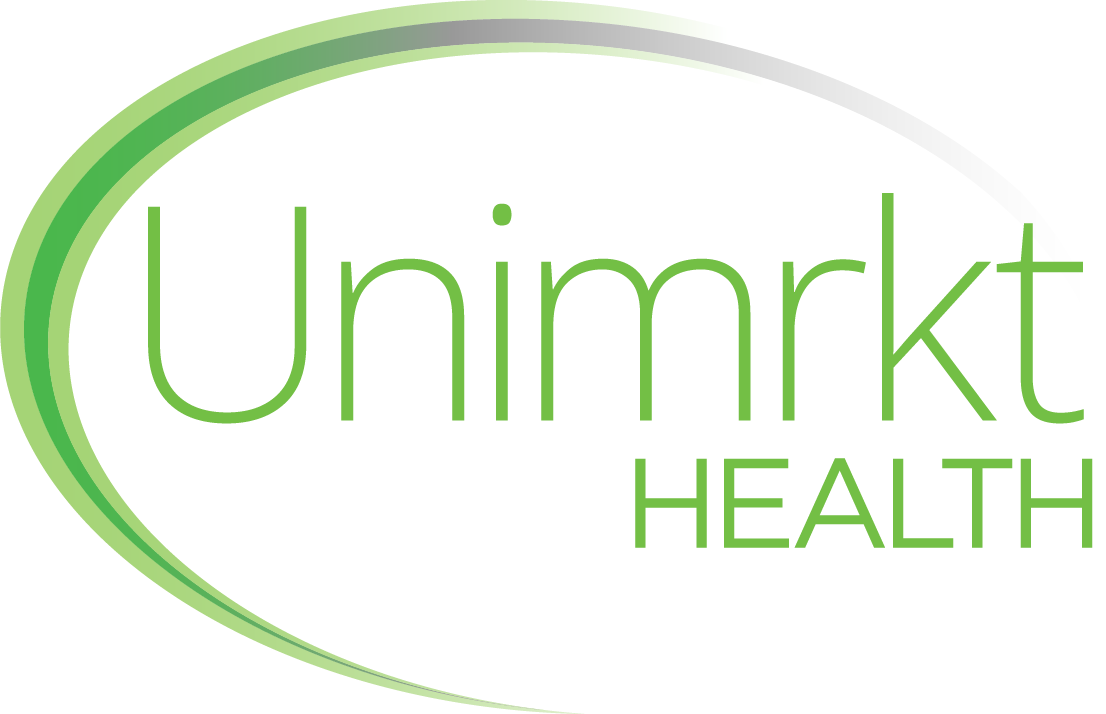The Value of Online Healthcare Practitioners Survey for Oncologists and Medical Stakeholders
- Unimrkt Healthcare » Blog » The Value of Online Healthcare Practitioners Survey for Oncologists and Medical Stakeholders
Physician surveys are invaluable tools that allow oncologists to voice their concerns, advocate for improved cancer care, and influence decision-making processes in healthcare. In this regard, the significance of online health surveys involving oncologists, and their role in shaping the future of cancer care, cannot be ignored. So, how do online healthcare practitioners surveys involving oncologists and medical stakeholders add value to your research program? Let’s find out.
The Role of Surveys in Oncology
Online health surveys play a pivotal role in offering a multifaceted approach to understanding and addressing the complexities of cancer care. Here’s a comprehensive look at how these surveys contribute to the advancement of oncology:
Gathering Data
Online health surveys serve as valuable tools for gathering crucial data across various aspects of cancer care, including treatment effectiveness, patient experiences, and healthcare delivery systems. Collecting data from oncologists, patients, and other stakeholders can help provide a comprehensive understanding of the challenges and opportunities existing within the oncology landscape.
Identifying Trends
Through the aggregation and analysis of survey responses, healthcare professionals can identify trends and patterns in oncology care. This includes trends in treatment preferences, emerging therapeutic approaches, and disparities in access to care. By recognizing these trends, healthcare professionals can adapt their practices to better meet the needs of patients and improve overall outcomes.
Driving Product Development and Decision-Making
Companies rely on the data collected through online surveys to drive product development and make informed decisions. Oncologists’ input helps identify areas for improvement, assess the efficacy of existing products, and explore opportunities for innovation in cancer care. By leveraging these insights, companies can prioritize initiatives that align with the evolving needs of healthcare providers and ultimately deliver more impactful solutions to patients.
Informing Marketing Strategies and Market Positioning
Data gathered from oncologists through online surveys inform companies’ marketing strategies and market positioning efforts. Understanding oncologists’ preferences, challenges, and priorities enables companies to tailor their messaging, outreach, and educational initiatives effectively. This can help healthcare companies align their marketing efforts with oncologists’ perspectives. By doing so, companies can enhance engagement, build trust, and establish themselves as trusted partners in the oncology community.
Enhancing Customer Relationships and Engagement
Engaging oncologists through online surveys strengthens the relationship between companies and healthcare providers. By actively seeking input and valuing their expertise, companies demonstrate a commitment to collaboration and partnership. This approach fosters a sense of ownership and investment among oncologists, leading to deeper engagement, increased loyalty, and ongoing collaboration on future initiatives.
Optimizing Resource Allocation and Strategic Planning
Understanding oncologists’ preferences and priorities allows companies to allocate resources more effectively, prioritize initiatives with the highest impact, and make informed decisions about where to invest their time and resources. Such a strategic approach maximizes the return on investment and ensures that companies are best positioned to meet the needs of oncologists and their patients.
Advantages of Online Surveys for Healthcare Companies
Online surveys offer numerous benefits to healthcare companies. Here are some key advantages:
Accessibility And Convenience
Online surveys provide oncologists with the flexibility to participate from anywhere, at any time, using their computer or mobile device. This accessibility factor eliminates the need for physical attendance at survey locations, allowing busy oncologists to contribute their feedback without disrupting their clinical responsibilities.
Market Intelligence
Online surveys provide healthcare companies with invaluable market intelligence by gathering comprehensive data. Through soliciting feedback from healthcare professionals, patients, and various stakeholders, companies gain insights into market trends, competitor activities, and emerging patient needs. This profound understanding of the market landscape empowers companies to make well-informed strategic decisions, identify growth opportunities, and maintain a competitive edge.
Reach And Diversity
Through online platforms, researchers can reach a diverse range of participants, including those from different geographical locations, practice settings, and areas of expertise. Such diversity ensures a broad spectrum of perspectives and experiences, enriching the quality and relevance of survey data.
Anonymity And Honesty
Online surveys offer respondents a level of anonymity that encourages candid and honest feedback. Oncologists may feel more comfortable expressing their opinions and experiences without fear of judgment or reprisal, leading to more authentic responses and valuable insights into cancer care practices and challenges.
Real-time Data Collection
Online health surveys enable real-time data collection, allowing healthcare companies to gather timely insights into emerging trends, issues, and opportunities in cancer care. Analyzed feedback can mediate informed decision-making processes, guide resource allocation, and drive continuous quality improvement initiatives within oncology practices and healthcare institutions.
Cost-effectiveness
Compared to traditional methods of data collection, such as paper-based surveys or in-person interviews, online medical surveys are often more cost-effective. They eliminate the need for printing, postage, and personnel costs associated with data collection and processing, making them a cost-efficient option for conducting research and gathering insights in oncology.
Efficiency And Scalability
Online surveys can help streamline the data collection process, reducing the time and resources required to administer and analyze survey responses. Healthcare companies can reach a large audience and collect a high volume of data in a short period, enabling comprehensive research studies and fast decision-making processes.
Customization And Flexibility
Most reputable online survey companies, like Unimrkt healthcare, offer customizable features and flexible design options, allowing companies to tailor surveys to their specific research objectives and target audience. They can incorporate branching logic, skip patterns, and multimedia elements to create engaging and interactive surveys that maximize respondent engagement and data quality.
Integration With Analytical Tools
Many online survey platforms offer built-in analytics and reporting features that simplify data analysis and interpretation. Healthcare practitioners’ online research programs often deploy these tools to generate real-time reports, visualize survey data, and identify trends and patterns, which in turn are used to inform research findings, clinical decision-making, and quality improvement initiatives.
The Significance of Physician Surveys in Healthcare
Physician surveys serve as a vital conduit for oncologists to voice critical concerns and offer recommendations in cancer care. For instance, as per data from the Center for Disease Control, cancer mortality rates have witnessed a notable decline of 27% over the past two decades, plummeting from 196.5 to 144.1 deaths per 100,000 population between 2001 and 2020. Oncologists are instrumental in bolstering cancer survival rates through various means, including leveraging physician surveys to:
- Facilitate enhanced patient access to crucial cancer care information, cutting-edge medical advancements, and a spectrum of treatment alternatives.
- Impact health policy decisions by providing policymakers with firsthand insights gleaned from patient experiences.
Recognizing medical surveys as a potent tool yields substantial benefits for both oncologists and their patients. Here’s why:
Influencing Policy and Decision-Making
Expert insights shared through paid surveys regarding patient experiences and cancer management issues hold significant weight in influencing health policy and clinical decision-making. Positive patient experiences not only enhance quality of life but also foster a more optimistic outlook towards cancer diagnosis and treatment.
Enhancing Cancer Care Quality
Oncologists play a pivotal role in elevating the quality of cancer care by lending their expertise on emerging cancer drugs and medical devices. Through surveys, oncologists contribute invaluable feedback on the efficacy and usability of these innovations, thereby shaping the direction of cancer care. Clinical feedback, coupled with patient responses and treatment outcomes, equips oncologists with comprehensive insights into the real-world implications of new therapies.
Empowering Decision-Makers
Physician surveys facilitate the seamless communication of oncologists’ comments and recommendations to relevant health authorities. This direct line of communication enables oncologists to provide detailed feedback on new cancer care solutions, thereby fostering continuous improvement in cancer treatment protocols and strategies.
Revealing Treatment Trends and Patient Outcomes
Market research surveys glean insights into evolving patient treatment trends, emerging medications, and patient outcomes. Such data is invaluable for oncologists in staying abreast of the latest advancements and tailoring treatment plans to optimize patient outcomes.
How To Conduct Physician Surveys?
Here’s a guide on how to conduct physician surveys effectively:
- Define the Objectives: Clearly outline the goals and objectives of the survey. Determine what specific information you aim to gather and how it will be utilized.
- Design the Survey: Develop a comprehensive survey instrument that aligns with your objectives. Ensure that the questions are clear, concise, and relevant to the topic. Consider using a mix of closed-ended and open-ended questions to capture both quantitative and qualitative data.
- Choose the Survey Method: Decide on the most appropriate method for administering the survey. Common methods include online surveys, telephone interviews, or in-person interviews. Choose a method that suits the preferences and availability of your target respondents.
- Select the Sample: Determine the target population for your survey and select a representative sample. Consider factors such as specialty, geographic location, years of experience, etc. Ensure that your sample size is adequate to yield statistically significant results.
- Pilot Test the Survey: Before launching the survey, pilot test it with a small group of respondents to identify any potential issues with clarity, wording, or formatting. Use the feedback from the pilot test to refine the survey instrument as needed.
- Distribute the Survey: Deploy the survey to your selected sample using the chosen method of administration. Provide clear instructions on how to complete the survey and specify the deadline for responses. Utilize multiple channels for distribution to maximize response rates.
- Monitor Responses: Monitor the survey responses as they come in to ensure data quality and completeness. Follow up with non-respondents or incomplete surveys if necessary to improve response rates.
- Interpret Report Findings: Interpret the survey findings in the context of your research objectives. In this regard, a healthcare market research company can help you prepare a comprehensive report summarizing the key findings, conclusions, and recommendations. They will present the results in a clear and accessible format, using charts, graphs, and tables as needed, so that you can have the data available as and when needed.
Final Word
Including oncologists in physician surveys can help shape the future of cancer care, with the ultimate aim being the improvement of patient outcomes worldwide. For the successful implementation and execution of online health surveys, you need an expert by your side. That’s where, we, Unimrkt Healthcare come into the scene. Throughout the years, we have consistently applied scientifically validated methodologies for research in the health industry, ensuring the delivery of actionable data through meticulous targeting of respondents. To learn more about how we can help you with your market research endeavor, call +91-124-424-5210, +91-9870-377-557, or email sales@unimrkthealth.com. You may also fill out our contact form, and our team of experts will assist you as soon as possible.
Recent Posts
- Precision Insights for Precision Medicine: Market Research to Drive Personalized Healthcare
- The Sales Head: Conducting Research with Star KOLs in the Pharmaceutical Industry
- Business Research Methodologies in Healthcare: 7 Desk-Based Approaches That Work
- Data-Driven Decisions: How Healthcare Technology Empowers Payers for Best Outcomes
- Human-Led Primary Research in the UK: The Case for CATI
Archives
- October 2025
- September 2025
- August 2025
- July 2025
- June 2025
- May 2025
- April 2025
- March 2025
- February 2025
- January 2025
- December 2024
- November 2024
- October 2024
- September 2024
- August 2024
- July 2024
- June 2024
- May 2024
- April 2024
- March 2024
- February 2024
- January 2024
- December 2023
- November 2023
- October 2023
- September 2023
- August 2023
- July 2023
- June 2023
- May 2023
- April 2023
- March 2023
- February 2023
- January 2023
- December 2022
- November 2022
- October 2022
- September 2022
- August 2022
- July 2022
- June 2022
- May 2022
Quick Enquiry
Customer Service, We Make it Better
Related Posts:
Let's Connect
Please, fill in the form to get in touch!



